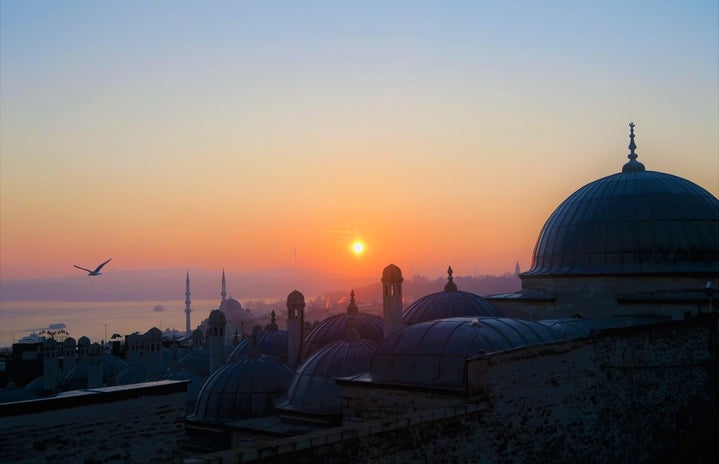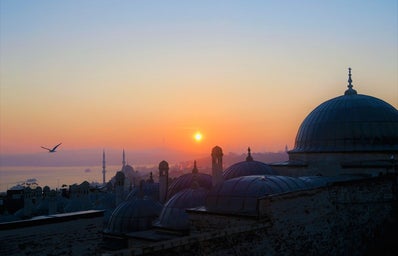Ramadan is a month in the Islamic calendar where Muslims fast from before dawn until dusk and focus on increasing their spirituality. This means abstaining from eating or drinking between sunrise and sunset for the month, and no, not even water. This year, Ramadan will be taking place between mid-April and mid-May. Ramadan is based on the lunar calendar, which means it slightly changes every year. Many Muslims engage in extended night prayers and increase in worship, which can include reading the Quran more, increasing their charity and trying to incorporate more good deeds into their lifestyle. Think of it as a physical and spiritual cleanse, where Muslims worldwide aim to become better people in all aspects of their life.
So what does a typical day during Ramadan look like? Muslims wake up early to eat a pre-dawn meal called suhoor and drink lots of water. At dawn, the first prayer of the day, called fajr, is performed and then usually most people try to go back to sleep. After that, it’s business as usual. Muslims go about their daily routines, like attending classes or going to work, just like at any other time in the year. The only difference is they don’t eat or drink during the day. While at school or work, there are times for the afternoon and late afternoon prayers, called dhuhr and asr, respectively. When sunset rolls around, it’s time to break the fast with a small communal meal often with family and friends called iftar, where many Muslims choose to eat dates and drink water first. Then, the evening prayer is performed, called maghrib, which is followed by a bigger meal. After that, people head to the mosque (during pre-COVID times) where the night prayer is performed, called isha, followed by special voluntary prayers that only take place during Ramadan. During the pandemic, prayers are offered at home to ensure everyone stays safe. Then, this cycle is repeated for the rest of the month. Of course, the actual fasting part of Ramadan is important, but there’s also a lot of emphasis on prayer and increasing worship.
There are also some exceptions for those who aren’t able to fast. In Islam, physical health and sustenance are really important so young children, elderly, people who are sick (physically or mentally), pregnant women and menstruating women are exempt from fasting. There are many legitimate reasons why a Muslim may not be fasting in Ramadan so it’s better not to ask unless they share the reason with you privately.
So if you have any Muslim friends, family members, classmates or coworkers, feel free to wish them a Happy Ramadan or Ramadan Mubarak, which means blessed Ramadan in Arabic. They’ll definitely appreciate the thoughtfulness!



